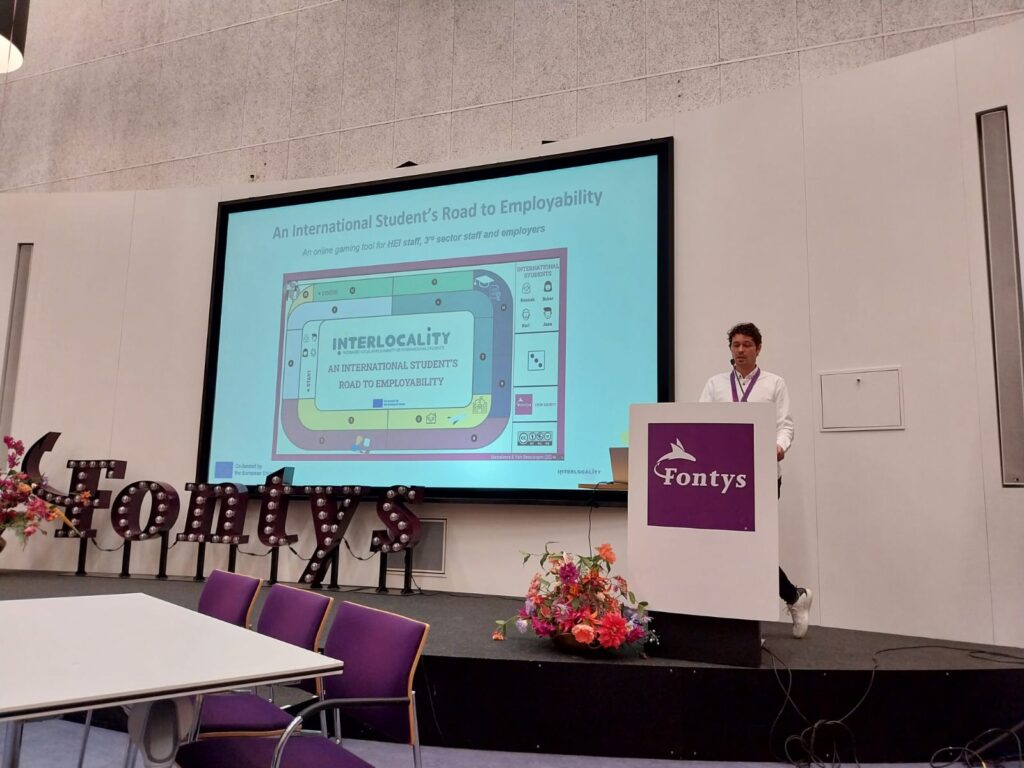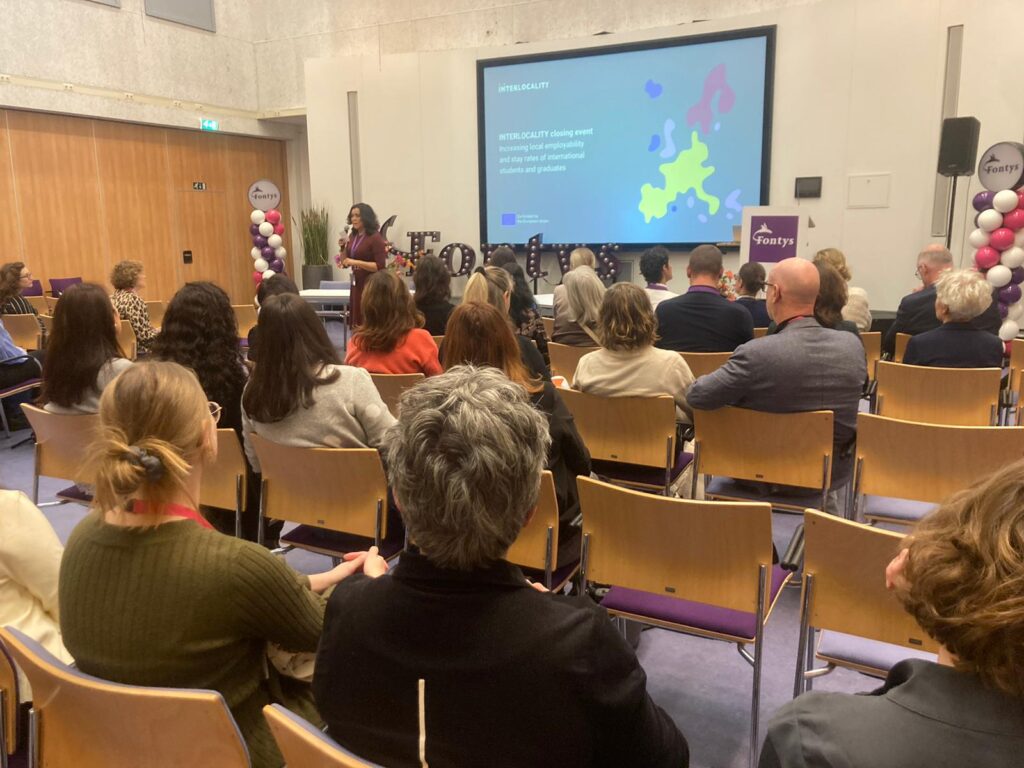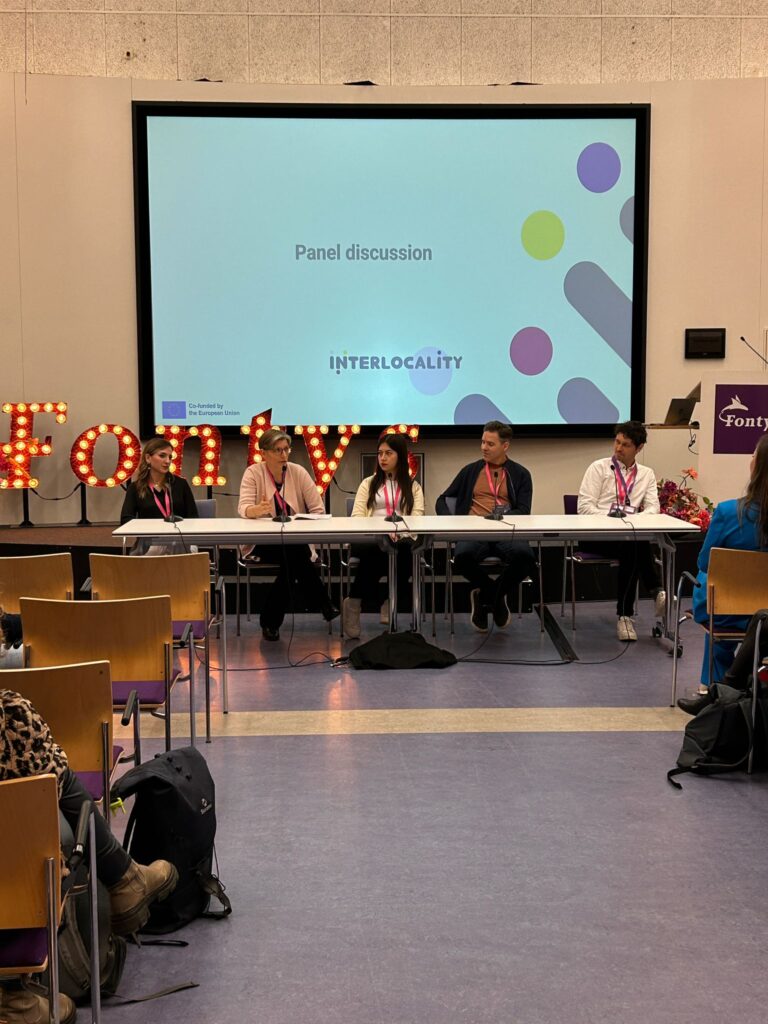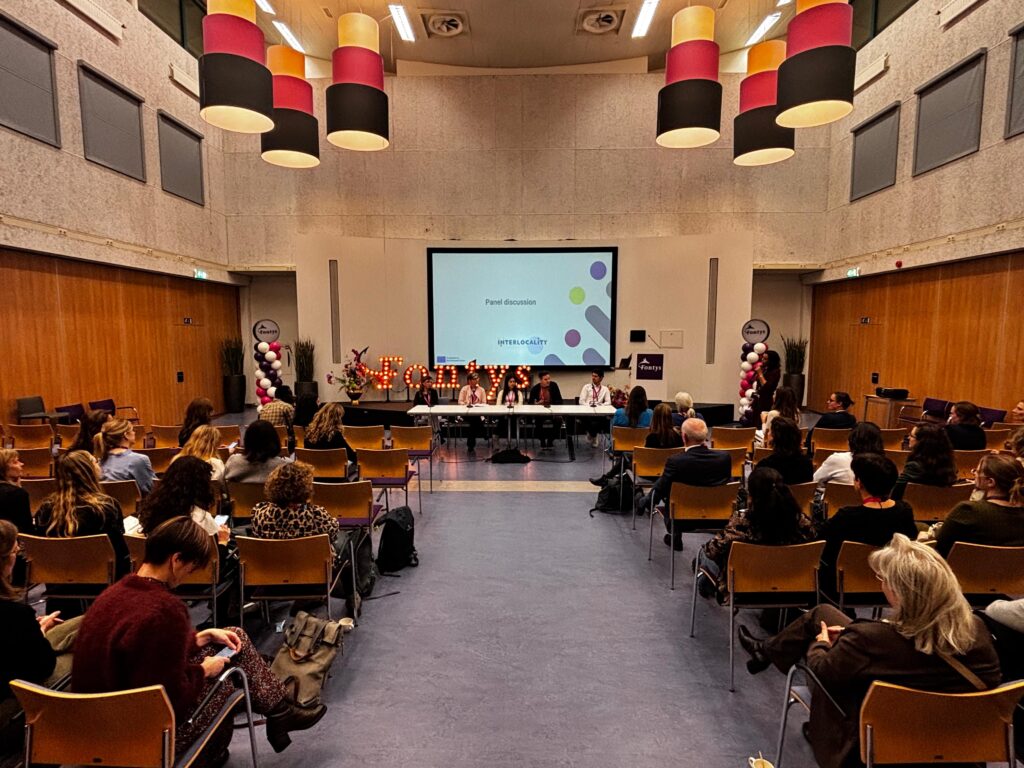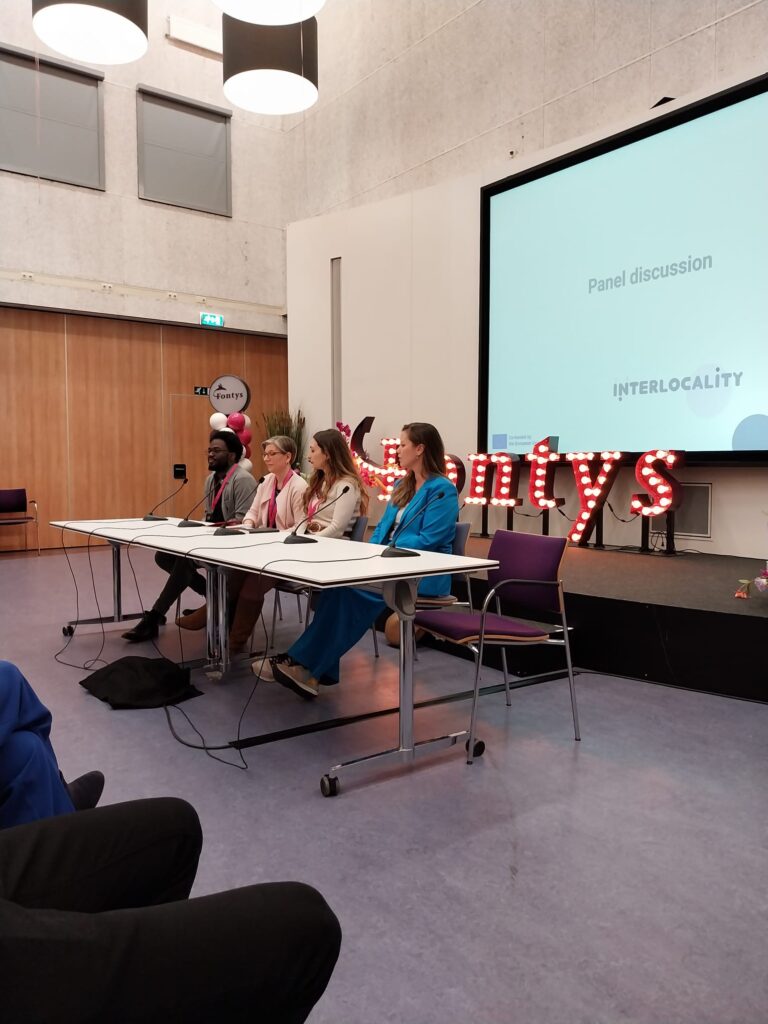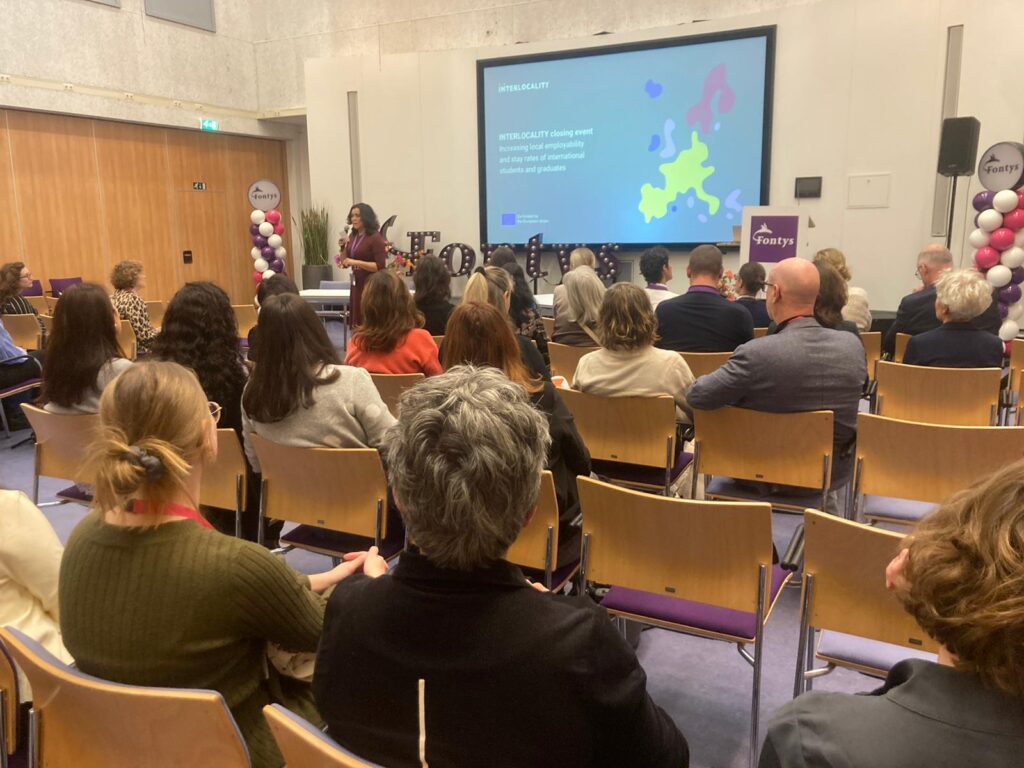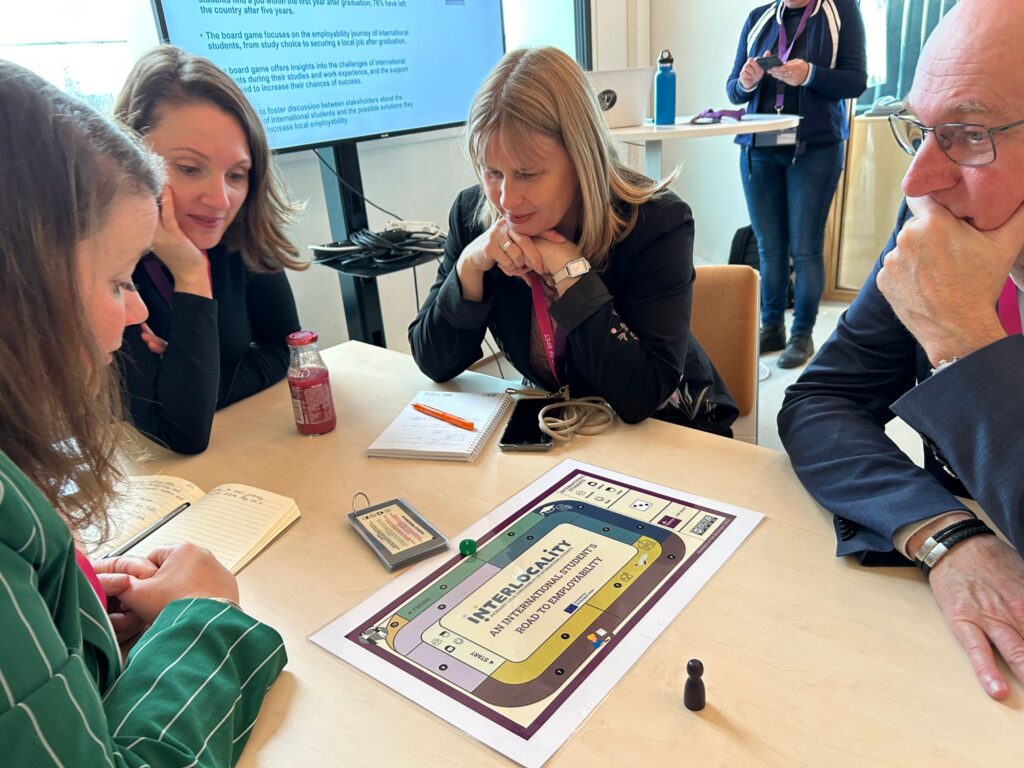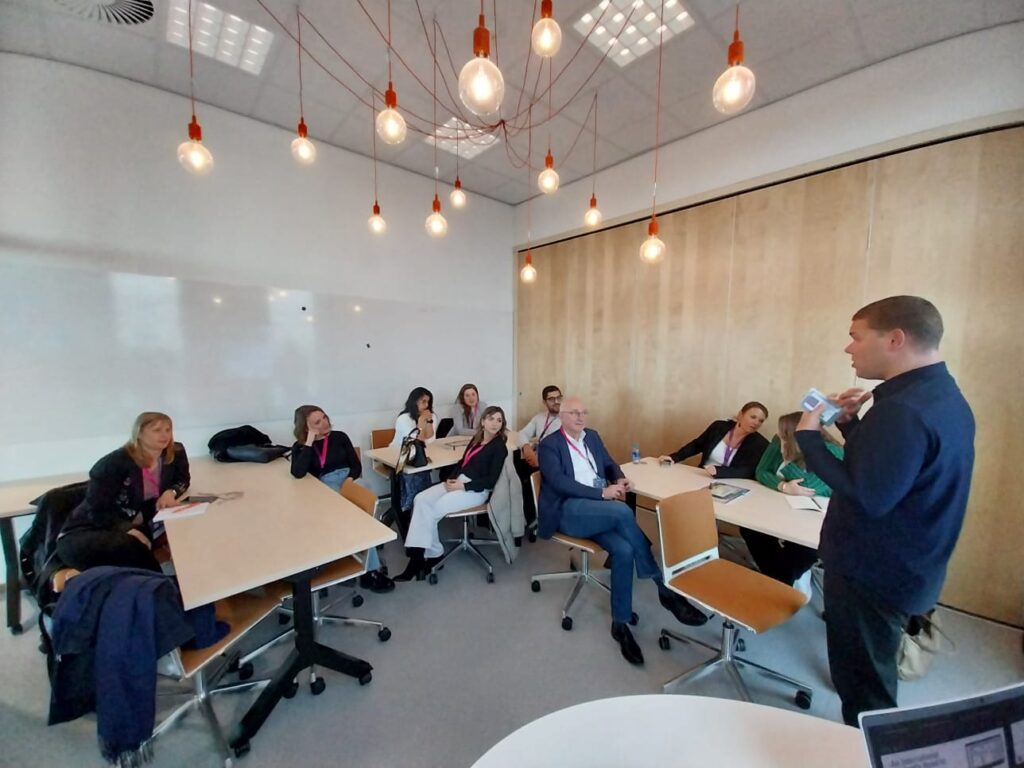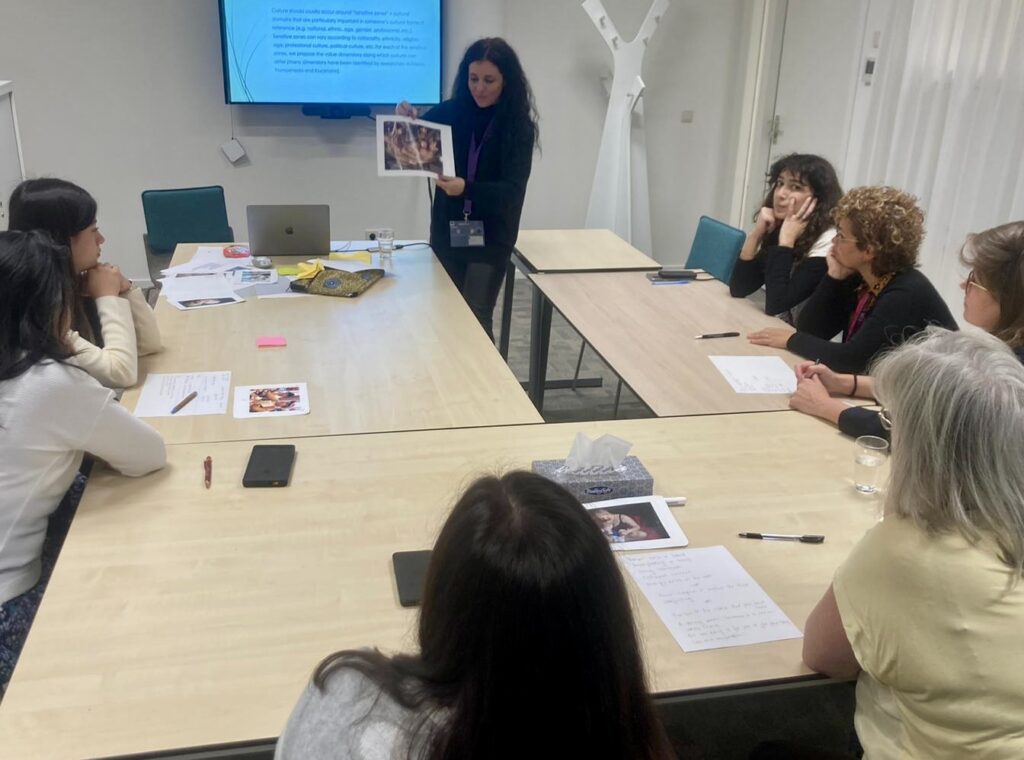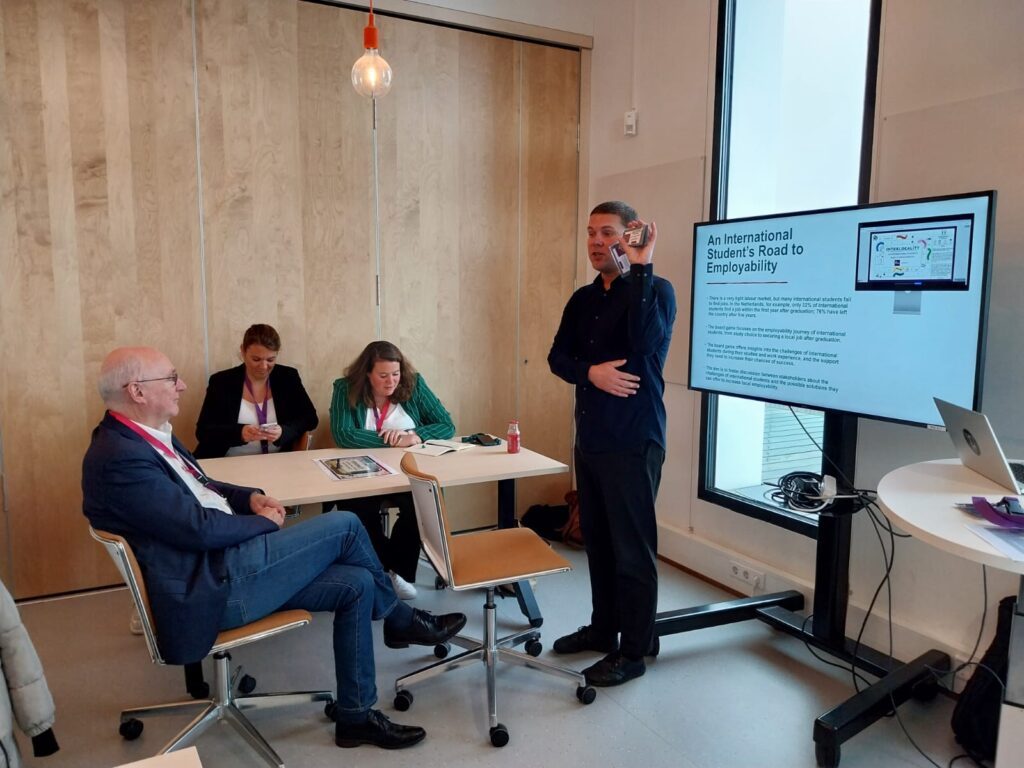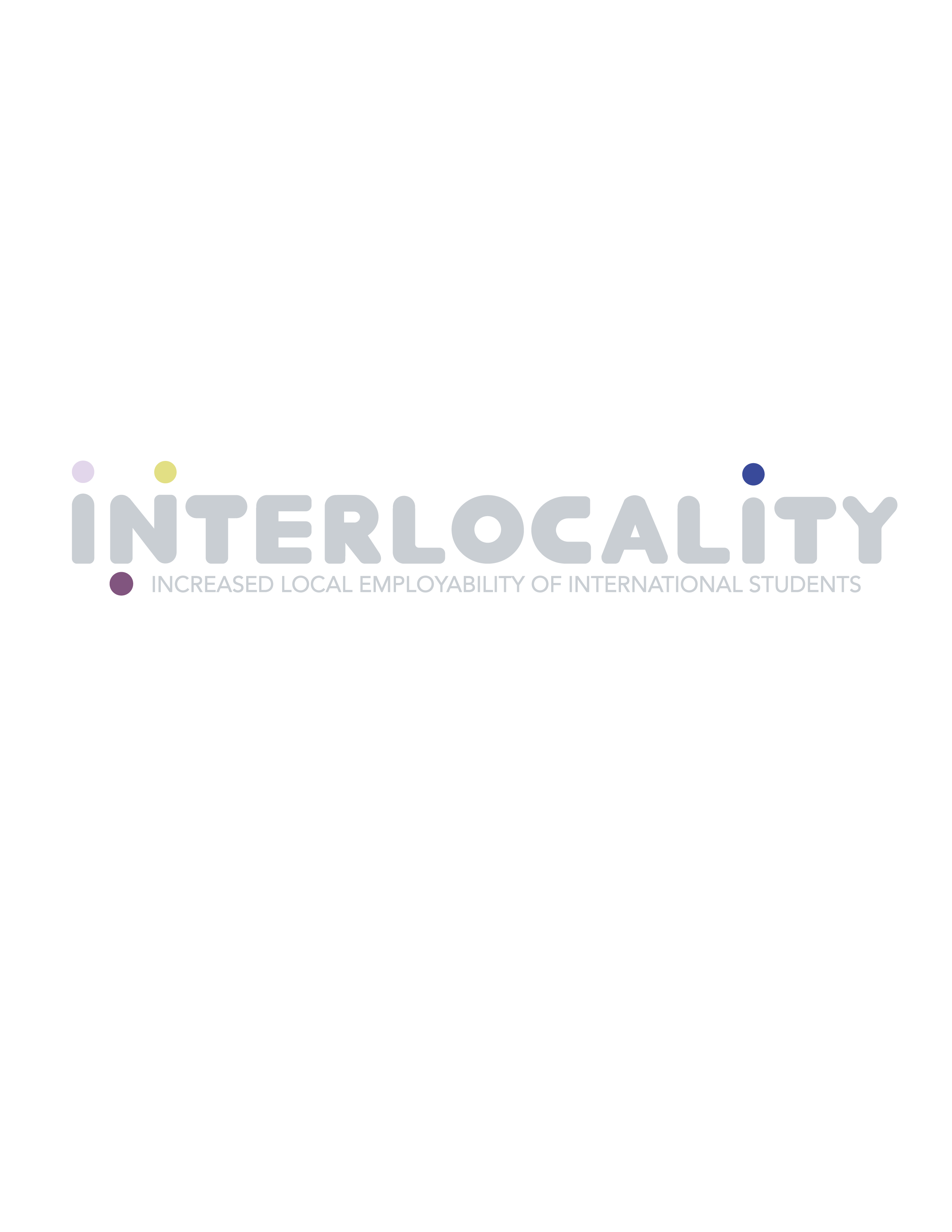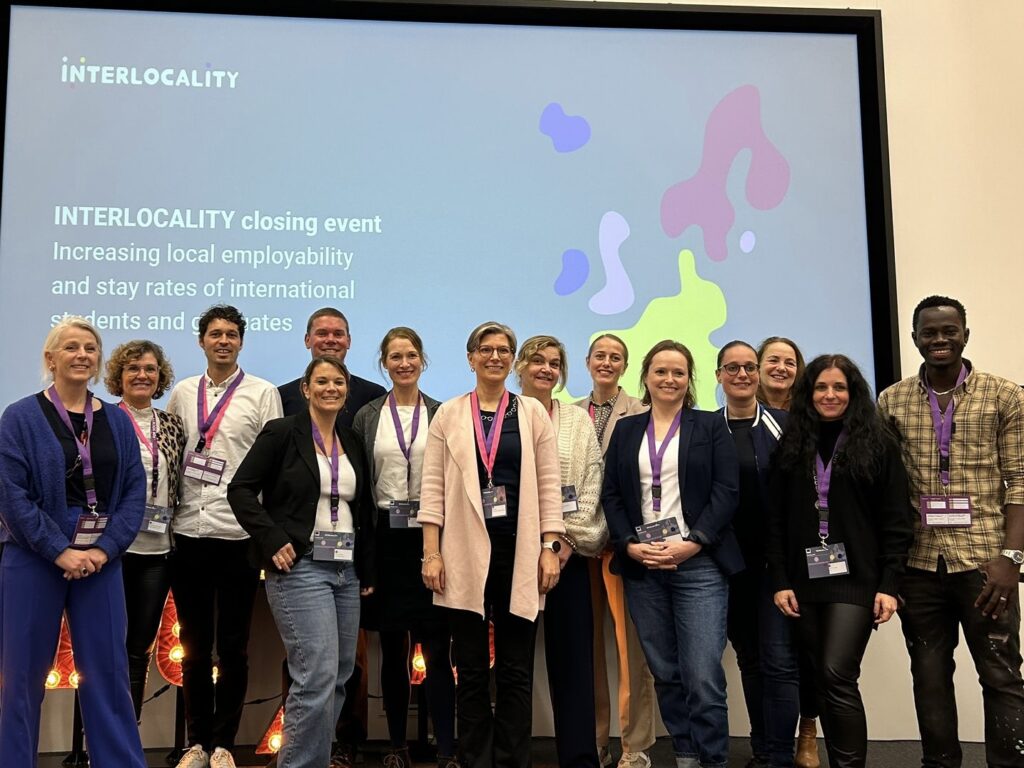
On occasion of the INTERLOCALITY closing event hosted by the local partner Fontys UAS, the project partners from Denmark, Germany, Finland and Italy, together with over 80 local and international participants have explored challenges and opportunities in enhancing the employability and retention of international students and graduates. Through innovative tools, evidence-based strategies, and collaborative approaches, the different stakeholders discussed how to build more inclusive and supportive labour markets and working environments, which are essential for addressing labour shortages and fostering culturally rich and innovative societies. Hence, only prioritizing integration, adaptability, and mutual collaboration, it is possible to thrive as global hubs for talent and innovation.
This approach perfectly matches the opening speech delivered by Joep Houterman, President of the Executive Board at Fontys University of Applied Sciences. Houterman highlighted that international talents are vital for the Netherlands, particularly in regions like Brainport, to address labor shortages and drive socioeconomic development. It is interesting noticing that while many international students arrive with aspirations to build careers here, only one-third stay after graduation. Fontys and its partners aim to increase this stay rate through initiatives like the Interlocality project, which provides practical tools and strategies to enhance employability. Key actions include integrating Dutch language classes, fostering intercultural awareness among employers, and adapting HR policies. Despite political challenges, Fontys confirmed its commitment to attracting and retaining international talents to build a more inclusive and innovative society.
Besides the plenary sessions, participants were offered the opportunity to attend two workshops, whose content and outcomes are briefly presented. All workshop materials can be downloaded at the bottom of the page.
1. An International Student’s Road to Employability – The Game
Researchers Loes van Beuningen and Luc Hameleers from Fontys led an engaging session focused on enhancing the employability of international students in the local job market. The highlight of the session was the innovative board game, “An International Student’s Road to Employability. This game is part of the INTERLOCALITY project results, and simulates the employability journey of international students, from selecting a study programme to securing a job post-graduation. The interactive nature of the game sparked lively discussions among participants, who shared experiences and insights on supporting and retaining international talents. The game provided a playful yet profound exploration of the challenges and successes faced by international students, offering concrete advice on when and where they need support to enhance their employability. This workshop not only highlighted the importance of supporting international students but also showcased practical tools and strategies to make a real impact on their journey to local employability.
2. I AM Talent: Supporting International Students and Alumni Developing Employability
In this workshop Dick Siesling and Marian Thunnissen, researchers at Fontys, presented the I AM Talent tool, a tested survey based on literature and documental research, over 100 interviews and an extensive theoretical framework. This tool helps international students themselves to reflect on various dimensions linked to their employability, while offering Higher Education Institutes relevant information on how their students perceive their employability as well as their development needs in that matter. This enables regular Personal Professional Development programmes to go to a next level! In this workshop, the experiences and lessons learnt from the pilot of the I AM Talent tool within Fonty were shared, but the participants also shared their needs and experiences regarding monitoring the employability of international students in their own national and local context.
3. The “International Talent Journey”
Nadine Pantel and Anna Hölscher from FH Münster proposed an activity to reflect on the “International Talent Journey’ – a structured qualification process on employability for international degree students. This tool is based on the identified need of HEI’s for a more guided process that equips international students with the necessary skills to enter the local labour market. The concept consists of a coaching and qualification process in several stages, starting with an assessment. Subsequently students participate in activities from the Employability Activities Catalogue, which helps them gain important skills in finding a job and getting to know regional employers. Successful participation may lead to a Career Certificate after a second assessment. The intensive support provided important insights into the (emotional) journeys of the international students, but the most important finding: There is no such thing as THE international student, but rather individuals with very different needs, strengths and experiences.
4. Unlocking Employer-Ability: Bridging the Gap between International Students and Host Country Employers”
The workshop “Unlocking Employer-Ability” led by Sandra Slotte highlighted the need to balance efforts between developing the employability of international students and fostering the employer-ability of host country employers. Participants explored how their own and other organisations could become more willing and capable of employing international talent, as well as how external stakeholders could support this process. One key outcome of the discussions was the recognition that enhancing employer-ability often begins with a mindset shift, where openness and self-awareness serve as foundations for addressing the challenges associated with hiring international graduates. The workshop also revealed that meaningful progress requires a deeper understanding of the intertwined barriers faced by both employers and international students, taking into consideration the role of external stakeholders, such as HE institutions, policy makers and third-sector organisations. Collaboration between all stakeholders is essential to creating a more inclusive and supportive labour market for international graduates, highlighting the mutual benefits of empowering international students and equipping employers to embrace diverse talents.
5. Intercultural Sensitivity Training: DECENTRATION WORKSHOP – connecting perceptions of reality, feelings and values for better intercultural interactions.
Alessandra Cannizzo and Ousman Drammeh, project manager and career counsellor at SEND, proposed a self-reflection activity useful to identify our own “sensitive zones” in intercultural interactions. The decentration workshop represents the first step of the Critical Incidents Methodology by Margalit Cohen-Emerique, and helps participants to fully experience what cultural glasses are, outlining the illusion of cultural neutrality beyond the mere attempt “to put ourselves in someone else’s shoes”. Starting from some images hanged on the wall, participants were asked to choose the one that caused the strongest feeling and team up accordingly. Then, the groups had to: 1. write an objective description of the image, 2. list the feelings experienced by all group members, 3. associate the feelings with the values underlying them. After that, facilitators moderated the debriefing in plenary. The different participants’ profiles have ensured a fruitful exchange that highlighted not only how challenging the identification and labelling of our own feelings and values can be, but also, how they affect our perception of reality. In fact, merging two similar quotes from J.W. Goethe and H. Bergson “The eyes see only what the mind knows or is ready to comprehend”.
6. Why Do International Students Stay after Graduating and What Helps Them in Finding a Job
In this workshop, Elli Thravalou and Gijs Ybema from Nuffic presented the key factors influencing international alumni’s decisions to stay in the Netherlands after graduation. Nuffic’s recent research, combining interviews and survey data, sheds light on important aspects like quality of life, career opportunities, and social networks. The challenges these graduates face were also discussed, such as finding suitable work and housing, and the support systems that can aid their integration, including financial support, Dutch language skills, and effective networking. This workshop helped participants to gain a deeper understanding of what helps international alumni feel at home and succeed in the Netherlands, discussing also the specific local needs and features in terms of employability and how good practices at the national level can also be applicable (or not) to other European countries.
7. Enhancing International Talent Attraction through Place Branding
The workshop on the Talent Attraction Program by Nicole Zwetsloot of Brainport Development showcased innovative strategies to attract and retain international talent. With over 100 years of history, Brainport is a hub for technology and innovation, driven by key players like Philips. Brainport Development is building vibrant communities and networks to support newcomers, ensuring they feel at home. The Holland Expat Center South assists with settling in, while the inclusive approach fosters connections between Dutch and international residents. Overall, based on a mix of lectures, case studies, and interactive discussions the workshop provided a comprehensive overview of the strategies and initiatives in place to attract and retain international talent in Brainport Eindhoven, focusing on creating a welcoming and supportive environment.
To conclude, the INTERLOCALITY closing event represented an international platform to explore strategies and tools, emphasizing the shared responsibility of employers, educational institutions, and policymakers in fostering an inclusive environment that supports international students and graduates. The debates highlighted the need for a more evidence-based approach towards international students and the value of gathering data and monitoring developments, but also the need for sharing knowledge and best practices. After all, employers, higher education institutes and third party organisations have a shared unique responsibility in the facilitation and guidance of international talents, and in this context having a deeper understanding of the barriers faced by both employers and international students is crucial. Asking more detailed and reflective questions allows organisations to uncover specific challenges and develop better solutions for attracting and retaining international talent.
- Presentation Opening by UCN
- Workshop 1 – An International Students Road to Employability: The Game
- Workshop 2 – I AM Talent: Supporting International Students and Alumni Developing Employability
- Workshop 3 – International Talent Journey
- Workshop 4 – Unlocking Employer-Ability: Bridging the Gap between International Students and Host Country Employers
- Workshop 5 – Intercultural Sensitivity Training: DECENTRATION WORKSHOP – connecting perceptions of reality, feelings and values for better intercultural interactions
- Workshop 6 – Why Do International Students Stay after Graduating and What Helps Them in Finding a Job
- Workshop 7 – Enhancing International Talent Attraction through Place Branding
